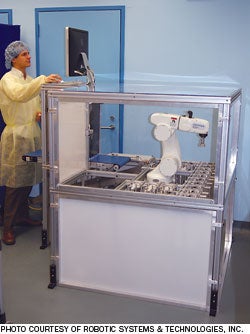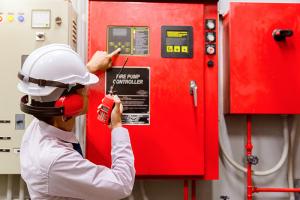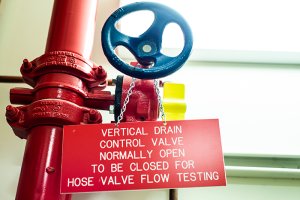Robot offers an assist to sterile processing department
 |
| The Penelope CS robot in use at New York-Presbyterian Allen Hospital. |
In a pilot program begun at New York—Presbyterian/The Allen Hospital in Manhattan, a robot named Penelope CS is helping the resource-stretched central sterile supply team reengineer its workflow processes.
In mid-May, the robot was tested before formal deployment in the department's designated "clean" area, after the soiled instruments are soaked and washed to remove bioburden and before they are sterilized. Once in everyday use, the robot will receive looped instruments such as forceps from a conveyor belt loaded by a CS technician. The robot scans each instrument, identifies it, counts and
segregates like instruments so technicians can assemble surgical trays faster and with fewer errors.
Michael R. Treat, M.D., founder of Robotic Systems & Technologies Inc. (www.roboticsystech.com), New York, which developed Penelope CS, says the unit will be a "labor multiplier."
"Penelope CS multiplies the technician's ability to do the job by a factor of four," Treat says, adding that the robot frees up CS staff time by handling repetitive steps such as counting and sorting instruments. These tasks are prone to human error with looped instruments, which often look alike.
Cynthia Johnson, one of the lead technicians in Allen Hospital's central sterile supply area, is excited about the impact the automation can have.
"It gives us time to be more efficient and inspect more closely," Johnson says, adding that her department currently processes about 2,000 instruments a day.
Jack Kaplan, president of Robotic Systems and Technologies, says the robot should deliver a return on investment in about a year.




